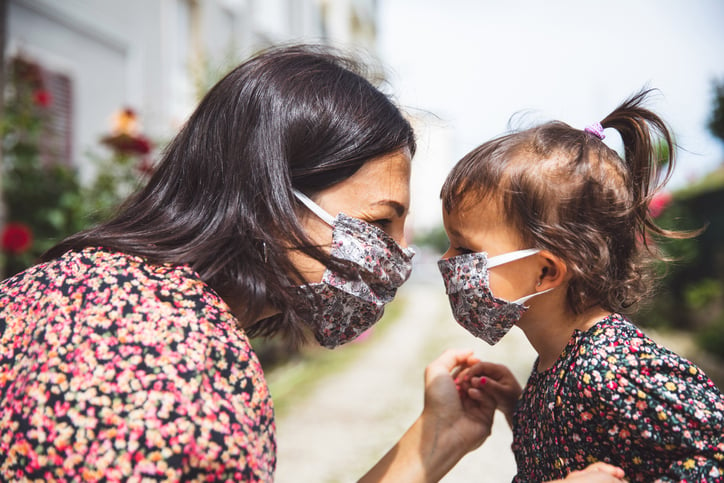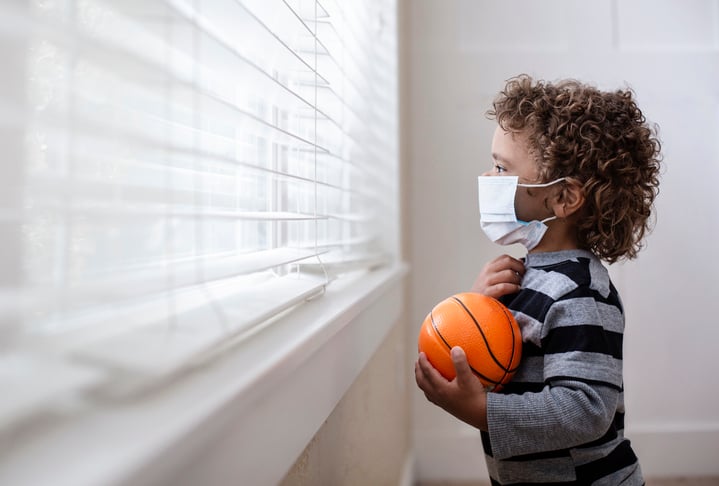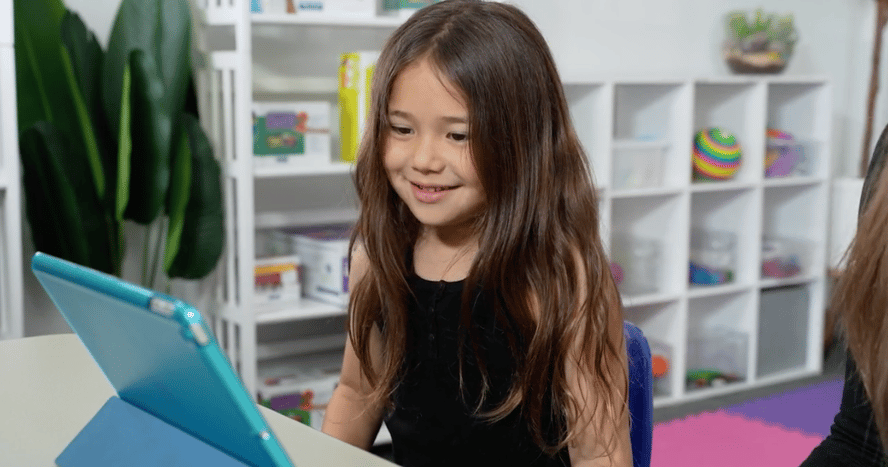
The COVID-19 pandemic is undoubtedly hard on everyone, but a recent study indicates that it may disproportionately affect autistic individuals. Considering this, it is important to recognize that those with autism often face significant challenges when:
- Adjusting to changes in daily routines
- Experiencing interruptions in typical sleep patterns
- Undergoing changes in their environment
- Being asked to comply with ever-changing public health guidelines and mandates
- Processing new sensory input (such as mask wearing) while accommodating societal expectations and requirements
Individuals on the spectrum might exhibit changes in mood that could include increased irritability, isolation, hyperactivity, depression, or anxiety. Many may also engage in challenging behaviors like aggression, and it is not uncommon for delays, plateaus, or a regression in speaking to occur. In fact, a variety of unique factors, circumstances, and situations can contribute to a lack of appropriate social behaviors as well as a difficulty developing the skills necessary for learning, executing tasks, and practicing daily living skills.
Rigid and inflexible thinking patterns, additionally, play a substantial role in the impact that the pandemic has on neurodiverse individuals. Strict mandates and quarantine guidelines, for example, often affect autistic individuals and their families on an even greater level than the average person, and – when masking and social distancing is required – many with autism may not be able to fully grasp the implication and significance of these new rules in the context of public health procedures.
On a similar note, hypersensitivity to sensory stimuli and social input can adversely affect one’s ability to comply with mandates, and difficulty participating in – and adjusting to – these guidelines may leave the autistic population particularly vulnerable to contracting and spreading illness.
With this in mind, it is crucial to offer a greater level of support, direction, and guidance for neurodiverse individuals, especially during times of uncertainty. Providing teaching, training, and personalized expectations is an integral component of the learning process for those on the spectrum, and developing coping skills to help these individuals effectively adapt to changes is essential. These components should not be overlooked, particularly during seasons of substantial transition, change, and adjustment.

Trauma Responses among Autistics
In addition to the behavioral, sensory, and mood-related challenges that many with autism face during the pandemic, it is becoming increasingly important to recognize the development of trauma responses among this population–specifically during stressful, ever-changing, and uncertain times. Research suggests that stress and trauma in neurodiverse individuals may present as:
- Difficulty sleeping
- Anxiety or depression
- Trouble concentrating and coping with change
- Self-injurious behaviors, including head banging or hand biting
- Regression in communication and social interactions
- Heightened hyperactivity
- Appetite changes
- Increased isolation and irritability
- Aggression towards self or others
- Self-stimulatory behaviors, such as hand flapping, rocking, or rubbing
For some with autism, the COVID-19 pandemic may result in a trauma-like response. In fact, the behavioral and psychological challenges seen in those with autism during the pandemic have been similar to the responses seen in those with post-traumatic stress disorder (PTSD).
Although everyone faces challenges that may leave them vulnerable to developing a trauma response (i.e., an automatic, over-exaggerated, or heightened reaction to a traumatic event, memory, or trigger) throughout their lives, neurodiverse individuals may be disportioptionaly susceptible to – and at a higher greater risk for – developing trauma-like symptoms in response to national, worldwide, and personal crises. Considering this, an effective approach for best supporting individuals on the spectrum during times of uncertainty, change, and fear is essential.

12 Tips for Coping with Trauma and Change
Creating a plan for assisting your autistic child or students during times of crisis is crucial, and several approaches that can be a good place to start include:
- Take frequent trips outside and attend virtual outings on platforms like Zoom.
- Use social narratives to illustrate effective ways for coping with change, even when everything feels unpredictable, out of control, and uncertain.
- Acknowledge and address parent and caregiver anxiety, fear, and depression.
- Provide ways to collaborate with those who have expertise in autism and those specializing in trauma.
- Practice self care skills, activities, and techniques like staying active, eating a well-balanced diet, getting plenty of rest, and socializing when possible.
- Develop an action plan and daily routine for the individual and their caregiver(s) to implement; this will provide consistency, structure, support, and predictability in an effective and reliable format.
- Establish a schedule for reinforcement that rewards positive behavior and structures concrete guidelines for task completion (e.g., after Sarah finishes her homework and takes out the trash, she will earn 15 minutes of TV time).
- Recognize sensory elements by including activities that are sensory-friendly based on the unique needs of the individual.
- Implement semi-structured play strategies for children with autism by incorporating opportunities for creativity, imagination, and free time throughout the day.
- Regularly participate in support groups, therapy, and check-ins with friends and family.
- Encourage breaks, independence, and open communication while simultaneously prioritizing effective techniques for time management.
- Keep favorite snacks, foods, and recipe ingredients on hand.
These suggestions provide a solid foundation for assisting those on the autism spectrum as they cope with the trauma, change, and stressful situations that accompany the widespread fear, isolation, and uncertainty associated with unprecedented events like the pandemic.
On a Positive Note
There are numerous ways to support neurodiverse individuals during health crises like the COVID-19 pandemic, and – with the proper support, appropriate routines, and self care skills in place – children, teens, and adults can thrive in an environment that pivots to meet their unique needs while also developing tools for coping with difficult, stressful, and overwhelming changes as they arise.
In some cases, families have noticed that their lives became less hectic during the crisis, and they were able to spend more time doing things together as a family with fewer visitors and disruptions. In the coming year, it is likely that we will continue to see progress being made in addressing COVID-19, and – even when things feel a bit disheartening – we can always focus on providing support and improving things for those around us.
We have developed a free checklist to use when you need strategies for helping your child with autism to cope. What are some other ways you have successfully managed responses to the COVID-19 pandemic among individuals with autism?
This article is based on the following research:
https://www.frontiersin.org/articles/10.3389/fpsyt.2020.561882/full
https://www.ncbi.nlm.nih.gov/pmc/articles/PMC7392884/
https://www.texaschildrens.org/blog/top-10-tips-supporting-your-child-autism-during-covid-19
https://childmind.org/article/supporting-children-with-autism-during-the-coronavirus-outbreak/
https://www.mindbodygreen.com/articles/fight-flight-freeze-fawn-trauma-responses/
Additional resources:
https://www.autism.org/webinars/children-anxiety-asd-pandemic/
https://molecularautism.biomedcentral.com/articles/10.1186/s13229-021-00424-y





